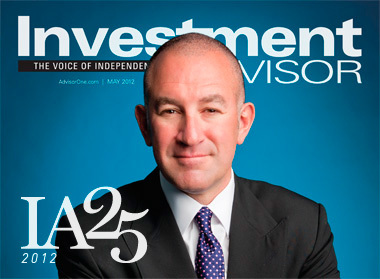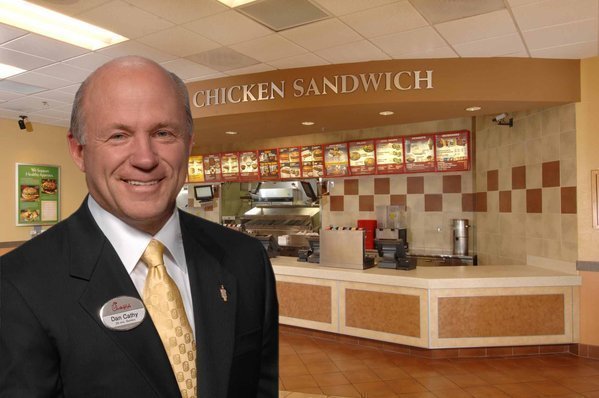When’s the last time you bought a 900-to-1500 ft2 diatomaceous earth filtration unit? Alright, that question was kind of specific. So when was the last time you bought a diatomaceous earth filtration unit of any size?
We’ve talked before about the Barbra Streisand investing strategy, in which you buy the stocks of products you use. (Ms. Streisand bought Starbucks stock because “we go to Starbucks every day.”) Taken to its logical extension, this would result in an economy that consisted solely of consumer products, which is impossible. A vibrant economy, or even a moribund one, contains plenty of goods and services that facilitate the delivery of your marked-up coffee and your social networking sites. You never think twice about those background goods, but would have great difficulty living without them. So…wouldn’t it make tons of sense to at least examine the stocks of the companies that make them? Especially since relatively few people are already doing it?
Unless you live in Houston, and even then, you’ve probably never heard of Schlumberger. Even its name sounds hopelessly square, like a 1950’s-era retail store. (“Ladies, come to Schlumberger’s for wash-and-wear clothes in all the latest space-age fabrics! You’ll love the selection, and your husband will love our prices! Dial KLondike 5-1239 for business hours. Now accepting charge cards.”)
Except Schlumberger a) was founded in France (it’s pronounced shlum-ber-zhay’) and 2) is light-years removed from that. It’s the world’s largest oilfield services company. What does that mean?
Well, say you have a claim (or “prospect”, to use the appropriate jargon) on a patch of seafloor in the Gulf of Mexico. Underneath it are millions of cubic yards of hydrocarbons, ready to be converted into petroleum and related fluids. You have a vessel that can contain the oil, or proto-oil, but how do you get it through vertical miles of ocean and into your hold?
With a subsea landing string/electrohydraulic operating system, that’s how. Basically a telescoping tube that collects your paydirt and sends it up. But you also want it to verify that it’s properly installed, given that you can’t exactly slap on some scuba gear and determine so for yourself. And it’d be nice if you could shut it off automatically in an emergency, preferably without getting your fingers wet.
These ain’t cheap, as you can imagine. Nor are directional drilling motors, nor flexible cement that seals your well off from the rest of the ocean and keeps the fish from getting dirty. Schlumberger is just one company that does all of the above and much else, and the next time you complain about how much you’re paying at the gas pump you should think about the tens of billions of dollars in capital investment it takes to fill up your precious fruity Prius.
The point is that there’s a vast sea of hidden value out there – the bottom of the iceberg, to introduce yet another tired and oceanic-themed analogy. Enormous corporations that provide vital services and products, and that no one outside of the industry gives a second thought to. Schlumberger pulled in $42 billion in revenue in 2012, and that number’s gone up every year. Its profit margins are huge, especially given what a capital-intensive industry it’s in. Despite the best efforts of solar and wind advocates, there’s no escaping the truth that oil provides denser and more easily obtainable energy than just about any substance short of uranium. In other words, demand for Schlumberger’s customers’ products (and by extension, Schlumberger’s products themselves) won’t be reducing anytime soon. There are other oilfield services companies, but Schlumberger is the largest.
Do you now how many individual investors own Schlumberger? Fewer than 10,000. At $73 a share it isn’t cheap in absolute terms, but that’s down from its 2008 apogee. Price/earnings ratio is 18, on the high end for the industry but not insurmountable. And of course there’s a dividend, currently $1.25 per year. (Like most companies of its size, Schlumberger pays its dividend out quarterly.)
It doesn’t have to be Schlumberger. There are scores of companies that are hiding in plain sight, making hundreds of millions of dollars apiece and comprising significant chunks of the S&P 500 and other indices. AXA. Allianz. Cardinal Health. Or from our last post, McKesson.
Okay, great. But I have no idea how to do this.
Sure you do. Read the chapter on investing in our book. It’s at least as easy to get through as this post is. Pick up our e-book, the obtrusive ad for which you probably ignored and reflexively closed when you logged onto the site just now. Refresh and try it again, because there really is an unglamorous secret to riches. Several secrets, in fact. And you’re not going to find them anywhere that intersects with pop culture and lowest-common-denominator mass media.






